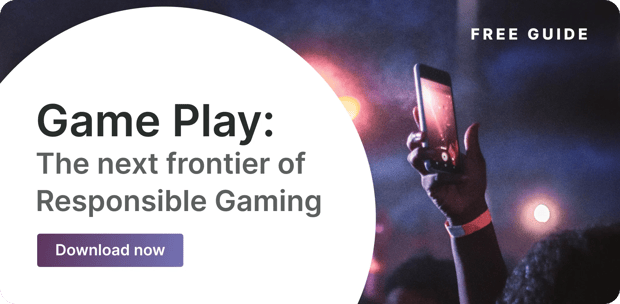Failings in consistency around customers’ responsible gambling experience is one of the key issues to resolve for upcoming regulatory changes, according to global strategic advisory business Regulus Partners.
“Standardisation [is required] around processes that operators take to identify customers who may be vulnerable and the levels at which various different interactions have to take place,” said Dan Waugh, Partner at the influential firm, in the latest episode of Tune Into Data, hosted by Future Anthem’s Head of Data, Ed Mitchell.
Acknowledging the highly complex nature of responsible gambling, Waugh also cited a need to strike a balance that gives the Gambling Commission assurances on operator behaviour and avoids stifling the necessary innovation that allows the processes to be constantly improved.
Operators must take the initiative – or face the consequences
An operator-led strategy and approach to regulation is a must for Bally’s – as well as a collective raising of standards to align with Bally’s and other leading sportsbook and casino brands that are already demonstrating they are serious and proactive about bringing positive change.
“Different operators have different risk appetites and indeed an appetite for safer gambling. There are a number of operators that are very proactive in this area and are leading the way, they’re investing huge amounts of capital to try and create the best solutions, but then you have some operators that are just not investing enough and not really meeting the standards that the Gambling Commission requires,” said Kevin Clegg, VP of Environmental Social Governance at Bally’s.
“Some operators are just quite simply too slow to react and to respond. It’s difficult for those operators that are proactive, they are investing huge amounts of money to try and minimise harm. Unfortunately, there is a lag in some of the operators which means that the Gambling Commission has to take the action that it’s taking right now,” he added.
And further inaction could lead to a ‘dystopian’ level of state monitoring, commented Waugh.
“We have got to be really careful here because we have seen a number of proposals which would see the data come into a central repository where the state monitors the behaviour of online gambling consumers and then the state takes the decision about what happens. I think that is incredibly dystopian,” he said.
Responsible gambling has ‘got to be cultural’
Waugh warned that these are the types of possibilities if the industry fails to take leadership – and Clegg underlined how responsible gambling needs true buy-in from across an organisation.
He explained how processes are not easy to set up, while operators need to constantly review and improve them by listening to guidance, looking at where fines and censures have taken place and working with expert third-party partners to ensure best practice.
“If you want to get away with the minimum you can do, then you are going to find you are behind the 8-ball and you’re going to have a lot of work to do to catch up,” he said.
“It’s got to be cultural; it’s got to be important to you, it’s got to be important to your employees and you have to take it really seriously.
If it’s something that you aren’t constantly reviewing and constantly developing, you’ll be foul of the Gambling Commission guidance and – indeed – it’s what our customers expect of us now. They expect to be taken care of, they expect us to be proactive in this area. Our stakeholders expect that as well. Any company that underestimates how external stakeholders feel about their performance in this area are making a big mistake.”
Against the backdrop of the much-anticipated Government white paper and review of the 2005 Gambling Act to ensure gambling regulation is fit for the digital age, other themes discussed by the panel include:How companies can prepare for changes in legislation and what to expect
-
Interpreting guidance from the Gambling Commission
-
Improving the customer experience to minimise harm
-
The single customer view
-
Real-time monitoring and interventions
-
Timescales for technological implementation
-
Learnings from enforcement cases
Get ready for the change, speak to one of our customer experience specialists today to learn how you get compliant (and beyond) in 4 weeks!


